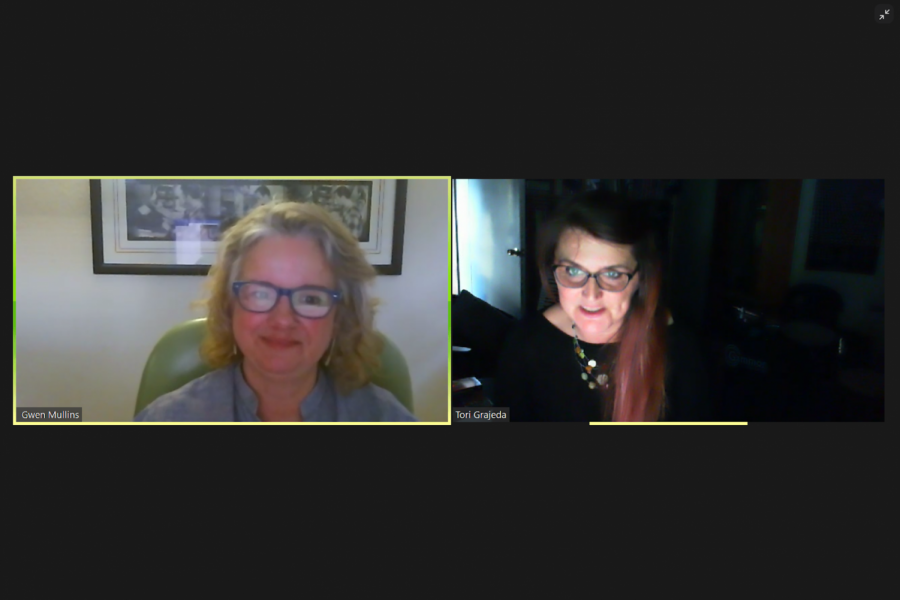Gwen Mullins Speaks at Valencia College
Gwen Mullins led a master class and read an excerpt from her upcoming novel on Feb. 11.
March 1, 2021
The second event of the Writing and Connecting in Times of Quarantine Visiting Author series featured a reading and master class from Gwen Mullins on Feb. 11.
Having earned her MFA from Vermont College of Fine Arts, Mullins works as a writing consultant and tutoring coordinator at the University of Tennessee in Chattanooga. This year, Gwen Mullins is a writer in residence at the Kerouac House, of which Valencia College Communications is partnering with for the 2020 and 2021 academic year.
Professor Victoria Grajeda hosts some of the writers featured in the Visiting Author series. “The Kerouac House is a very special place tucked away in College Park, which is near Downtown Orlando,” Professor Grajeda explained. Writer John Kerouac lived at the Kerouac House for a brief period of time between 1957 and 1958. Today, the Kerouac House hosts about 4 authors every year so they can focus on their writing. Professor Grajeda encouraged students to learn more and “know about this special place in our community.” Gwen Mullins is the first from the Kerouac House to visit Valencia College this year. She is currently working on her second novel and a short story collection.
Expected to be released in New Ohio Review this Spring, Mullins’s “Violent Devotion” started as a stand-alone short story and is the origin of the novel she is currently working on. During the event, she read an excerpt from “Violent Devotion” to participants.
Her inspiration for writing “Violent Devotion” came after reading an article from The Washington Post. After apologizing for explaining the graphic event, Mullins explained, “Since it wasn’t considered a dictionary definition of sexual assault, he was let go with a warning. That got me thinking not so much of the victim—although, of course, I thought about her—or even about the man who did that thing, but about that family.” Mullins further explained how the article made her wonder what it might have been like growing up with someone who could “commit these terrible acts.” She said, “I was more interested in exploring that perspective than, in this case, the victim or the perpetrator.” This curiosity led her to write her second novel.
As the event progressed, attendees learned about Mullins and her writing process with short stories and novels. Mullins encouraged aspiring authors to share their writing but advised against sharing their first draft. She said, “Write it a few times, put it in a drawer, come back to it in a week or two weeks, and then read it again and edit it. You will see things that you missed that are easier to pick up. Then, after that, read it, edit it, or you can send it to a friend or someone you trust if you need that,” Mullins said.
A uniqueness of Mullins’s writing is her use of sensory details, which she encouraged participants to use in their future writing. Participants practiced their sensory detail skills during the master class portion of the event. The generative activity, led by Mullins, involved writing a scene where two characters are eating together. In the first half of the activity, participants wrote from the point of view of one character and focused on using as many senses as possible. In the second part of the exercise, however, the character whose point of view participants wrote from lost their sense of taste and smell, an idea influenced by COVID-19.
Throughout the event, participants asked Mullins about her career journey, life, and her work. Answering a participant’s question regarding her path to authorship, Mullins said, “I don’t remember a time when I didn’t want to be a writer.”




